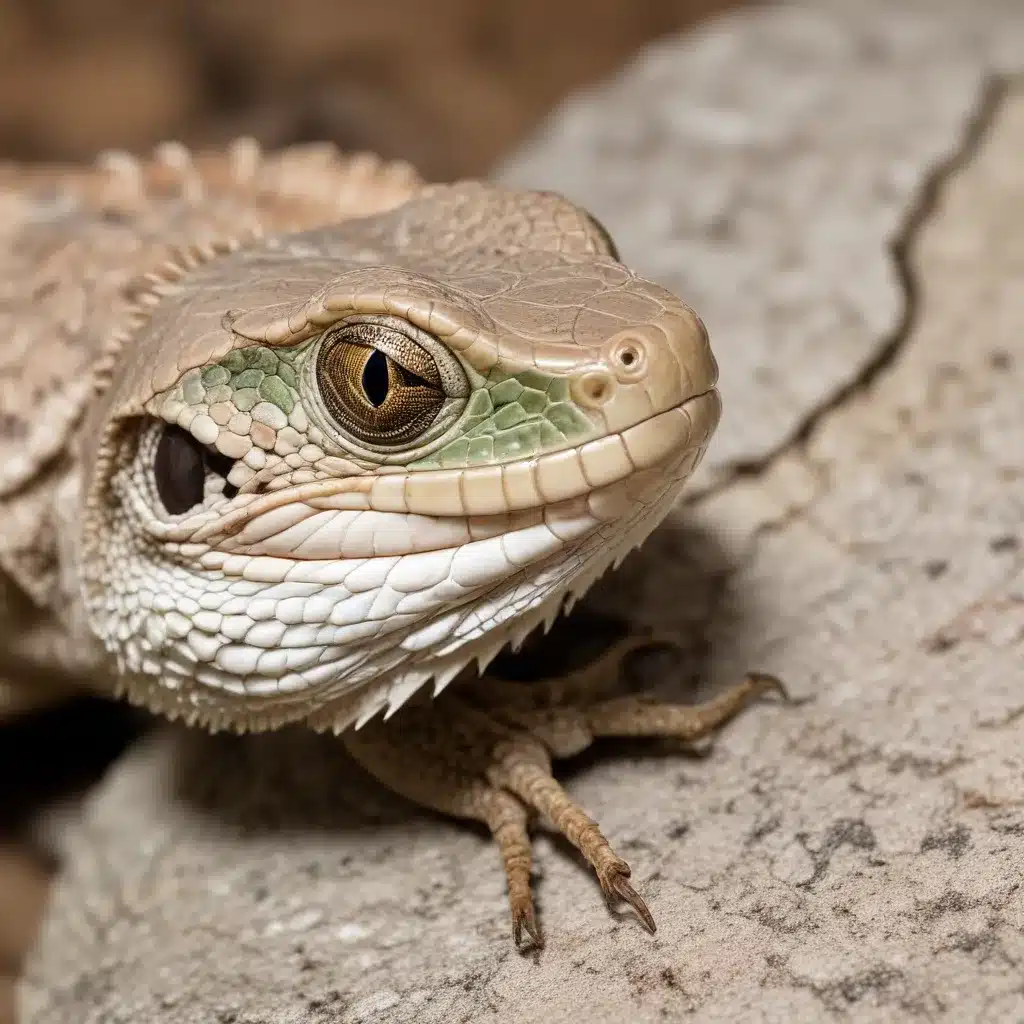
Understanding Reptile Parasites
Maintaining the health and well-being of one’s reptile collection is a top priority for any exotic pet enthusiast. Unfortunately, one of the most common challenges reptile owners face is the threat of parasitic infestations. These tiny, often unseen pests can wreak havoc on the delicate ecosystems of our captive reptile habitats if left unchecked.
Reptile parasites come in many forms, from mites and ticks to internal worms and protozoa. Each type of parasite requires a tailored approach to identification, treatment, and prevention. Failing to address a parasitic issue promptly can lead to devastating consequences, including illness, reduced lifespan, and even death of the affected reptiles.
As responsible reptile enthusiasts, it is crucial that we understand the various parasites that can impact our collections and implement effective control strategies to keep our scaled companions healthy and thriving. By proactively addressing parasitic threats, we can ensure the long-term well-being of our reptile families.
Identifying and Diagnosing Reptile Parasites
The first step in effective parasite control is to properly identify the type of parasite affecting your reptiles. This requires close observation and, in some cases, laboratory testing. Common external parasites include mites, ticks, and leeches, while internal parasites may manifest as worms, protozoa, or other microscopic organisms.
External parasites can often be spotted with the naked eye, especially in their adult stages. Mites, for example, may appear as tiny moving specks on the skin or in the substrate. Ticks can be seen attached to the reptile’s body, while leeches may be found in the water or clinging to the skin.
Internal parasites, however, can be more challenging to detect. Signs of internal parasitic infection may include weight loss, lethargy, diarrhea, or vomiting. In some cases, fecal samples may need to be examined under a microscope by a veterinarian to identify the specific parasite present.
It’s important to note that some parasites, such as certain mites, can be difficult to eradicate and may require a multi-pronged approach involving both topical and systemic treatments. Seeking the guidance of a reptile-experienced veterinarian is highly recommended to ensure the proper diagnosis and treatment of any parasitic issues in your collection.
Implementing Effective Parasite Control Strategies
Once the type of parasite has been identified, the next step is to implement a comprehensive control strategy. This may involve a combination of environmental management, topical treatments, and in some cases, systemic medication.
Environmental Management: Maintaining a clean and well-designed habitat is crucial for preventing and managing parasitic infestations. This includes regularly cleaning and disinfecting enclosures, replacing substrate, and ensuring proper humidity and temperature levels. Proper quarantine protocols for new additions to your collection can also help prevent the introduction of parasites.
Topical Treatments: For external parasites, such as mites or ticks, topical treatments like insecticidal sprays or powders may be used to eliminate the pests. These products must be applied carefully, following the manufacturer’s instructions, and should be used with caution to avoid harming the reptile.
Systemic Medications: For internal parasites, such as worms or protozoa, systemic medications administered orally or through injection may be necessary. These treatments should only be used under the guidance of a reptile veterinarian, as incorrect dosing or administration can be harmful to the animal.
It’s important to note that not all parasite control products are created equal, and some may be more effective or safer for certain reptile species than others. Doing your research and consulting with a reptile expert is crucial to ensure the proper and safe use of any parasite control products.
Legal Considerations for Exotic Reptile Ownership and Sales
In addition to the technical aspects of reptile parasite control, it is essential to be aware of the legal requirements and regulations surrounding the ownership and sale of exotic reptiles.
Licensing and Permits: Many jurisdictions require specific licenses or permits for the possession and breeding of certain reptile species. These regulations are in place to ensure the welfare of the animals and prevent the introduction of invasive species. It is the responsibility of the reptile owner to research and comply with all applicable laws in their area.
Import and Export Regulations: The transportation of exotic reptiles, whether for personal ownership or commercial purposes, is often subject to strict import and export regulations. These may include requirements for health certificates, quarantine periods, and special documentation. Failure to comply with these regulations can result in significant legal consequences.
Species-Specific Considerations: Some reptile species may be protected or have special legal status due to conservation concerns or invasive potential. Owners and breeders must be aware of the specific rules and restrictions surrounding the reptiles in their collection, including any limitations on breeding, sale, or interstate/international transport.
Staying up-to-date on the latest legal requirements and maintaining thorough documentation is crucial for responsible reptile enthusiasts, whether they are caring for a personal collection or engaging in the sale of exotic reptiles. Consulting with local authorities or a reptile legal expert can help ensure compliance and avoid potential pitfalls.
Conclusion
Maintaining a healthy and thriving reptile collection requires a comprehensive understanding of parasite control and legal compliance. By diligently identifying and addressing parasitic threats, implementing effective management strategies, and adhering to all applicable regulations, reptile enthusiasts can ensure the long-term well-being of their scaled companions.
Through continued education, proactive management, and a commitment to responsible reptile ownership, we can create a vibrant and sustainable community of exotic reptile enthusiasts. By sharing our knowledge and best practices, we can empower fellow reptile owners to provide the highest level of care for their animals and contribute to the overall conservation and appreciation of these fascinating creatures.
Remember, the health and safety of our reptile collections should always be our top priority. By staying vigilant, seeking expert guidance, and adhering to legal requirements, we can create a thriving and responsible exotic reptile community that celebrates the beauty and diversity of these incredible animals.
For more information on exotic reptile care, breeding, and legal requirements, please visit exoticreptilesforsale.com.

